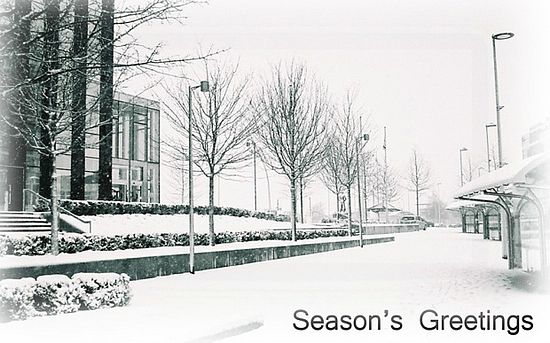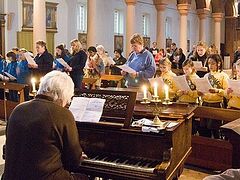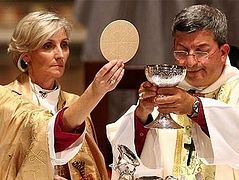December 7, 2014
It is the biggest religious festival of the year, the moment when more than two billion Christians around the world celebrate the birth of Jesus.
But a glance at the official Christmas cards sent out by Britain’s local councils this year seems to suggest the occasion is apparently best celebrated without any reference to religion - or often even mention of the word ‘Christmas’ itself.
A survey carried out by The Christian Institute for The Telegraph has found that barely half of councils in Britain now send cards or other greetings specifically mentioning Christmas.
And, out of almost 200 local authorities surveyed, only one is sending a card mentioning the birth of Christ.
The findings led to accusations that government bodies in the UK have forgotten the true meaning of Christmas and are intent on “airbrushing” Christianity out of public life out of a misguided fear of offending members of other religions.
The Christian Institute said the survey, carried out under the Freedom of Information Act, showed too many councils are now more concerned with “PC inflicted embarrassment” than celebration.
Overall 182 councils supplied details of their official Christmas greetings, while a handful of others said they had yet to finalise their design for 2014.
Just over half (56 per cent) are sending cards which mention Christmas.
More than a quarter, 28 per cent) are not planning to send cards marking the festive season at all, under pressure to make deep cuts in local spending.
But a further 16 per cent are sending cards without even a passing reference to Christmas, with many offering variations of the neutral “Seasons Greetings” while others wish people “all the best” for the “festive period”.
Only one – Banbridge in Northern Ireland – is sending a card mentioning the birth of Christ.
Three others – Spelthorne in Surrey, North Warwickshire and Calderdale in West Yorkshire – are sending cards with a nod to religion, referring to seasonal “blessings”or wishing people a “blessed” Christmas.
Some feature council headquarters, usually under a dusting of snow, or images of local dignitaries with a message such as Merry Christmas or Season’s Greetings.
Corby District Council in Northamptonshire’s offering last year featured a snow covered vista spanning the Corby Cube – a box-shaped council headquarters built in 2010 and referred to as “iconic” – and a line of bus shelters.
By contrast, Banbridge’s card shows a winter scene on the River Ban on the cover with a message inside reading: “As we celebrate the Birth of Christ may God’s Love be with you this Christmas season and evermore.”
Colin Hart, chief executive of the Christian Institute, said: “Well done to those public officials who have chosen to shun the saccharine sentiment of ‘Happy Holidays’ for Christmas cards that celebrate the coming of Jesus.
“The birth of Christ is a cause for deep joy not PC inflicted embarrassment.
“The Scrooge-like approach of some councils to take Christ out of Christmas is a denial of the wonderful truth of the Christmas story as well an affront to this country’s Christian heritage.
“This has all the hallmarks of another attempt by publicly funded bodies to airbrush Christianity out of public life.”
Marie Hamilton, chair of Banbridge District Council, said she was surprised others had shied away from including a Christian message or even mentioning Christmas.
“At the end of the day Christmas is a Christian festival,” she said.
“I don’t think anyone should have to water down that fact.
“I am hopeful that people from other religions feel Christmas is a time for enjoying themselves and for family getting together as well, but I don’t think that there should be a need to apologise that Christmas is a Christian festival and I don’t think people should feel that it is not PC – that should not come into it.”
Mrs Hamilton, who represents the nationalist SDLP on the otherwise unionist dominated council, said that far from being a source of division, Christmas brings people together across the sectarian divide.
“I’m hopeful that it doesn’t exclude anyone,” she added.




